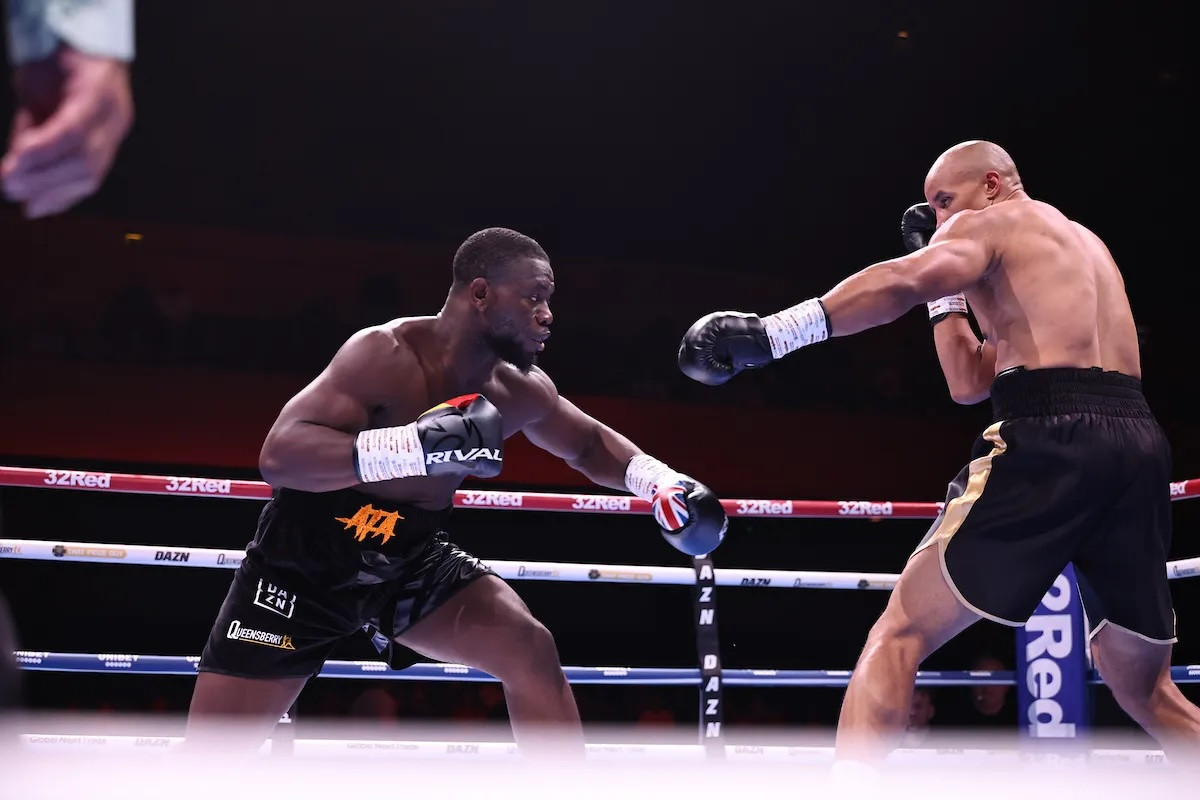Saturday’s cruiserweight meeting between Aloys Youmbi Junior and Ellis Zorro at Bournemouth’s International Centre has triggered a lively post-fight debate. Official tallies of 97-93 (Mark Bates), 98-93 (Victor Loughlin) and 96-93 (Kevin Parker) handed Aloys Junior a unanimous decision, yet many observers felt the margins, especially Loughlin’s five-point spread, failed to capture the bout’s competitiveness.
From ringside the pattern looked clear enough. Aloys Junior made the fight: he pressed forward, chopped at Zorro’s body and dictated a measured pace. Zorro answered with a sharp jab, spurts of tidy counter-punching and constant movement, but his success came in pockets rather than sustained stretches. In the early rounds Aloys’ pressure, punch volume and commitment downstairs banked the quieter, workmanlike rounds that often decide close contests.
Watch the official fight highlights here: Watch
Zorro’s best moments arrived when the jab flowed and he forced Aloys Junior into resets, yet he rarely seized momentum long enough to flip control. Rewatching the action suggests a 96-94 card, six rounds to four, would have made sense: Zorro had claims to at least four frames on the strength of his jab and cleaner counters. Even so, calling the result a “robbery” stretches credibility. The wider 98-93 tally exaggerated events, but the fighter who advanced, attacked and took more risks deserved to edge it.
In a cagey affair where neither man truly stamped dominance, the deciding factors were intent and initiative. Aloys Junior showed both with steadier body work and the responsibility of ring generalship. Zorro boxed with poise and avoided prolonged exchanges, yet in doing so left the more eye-catching passages and, ultimately, the verdict, to his rival. The uproar highlights boxing’s subjectivity, but the decision itself stands on solid ground.
Image Credit: Queensberry Promotions
